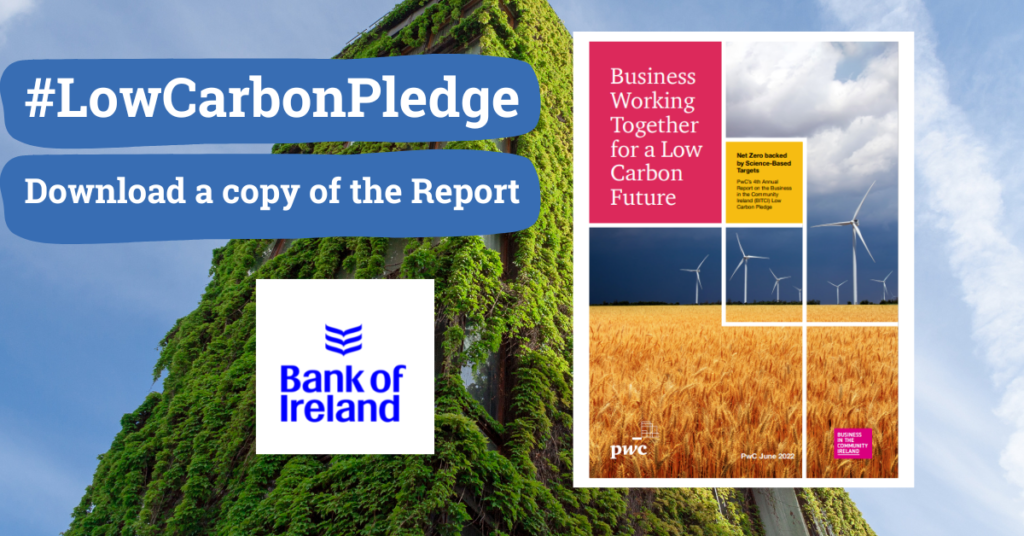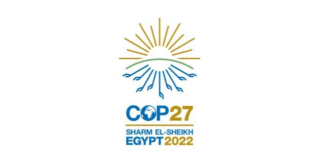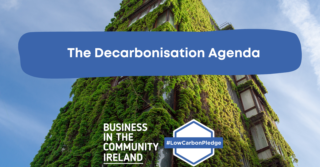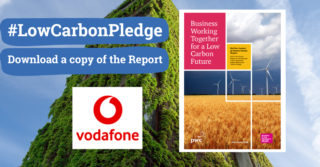Setting science-based targets with Bank of Ireland
Bank of Ireland is one of the pillar banks in Ireland and therefore recognises the important role it plays in driving attainment of the national climate targets. Firstly, Bank of Ireland can show leadership through its internal focus on sustainability and secondly, by setting ambitious climate targets aligned to science-based targets (SBTs), the bank can drive cross-sectoral change by evolving its sustainable finance product and propositions and lending strategies. Through its ownership of New Ireland and Davy, it can also drive change through its investment propositions.
The journey to Science-Based Targets
Bank of Ireland has seen the external focus on sustainability growing considerably over the past number of years, with ever-growing expectations from customers, investors, regulators and wider society for increased action and transparency. As one example, in January 2022 the European Central Bank (ECB) launched a supervisory climate risk stress test to assess how prepared banks are for dealing with financial and economic shocks stemming from climate risk. Further interventions like this are expected.
In response to growing stakeholder expectations, and to deliver on its strategic commitments regarding sustainability, Bank of Ireland is evolving its portfolios and lending practices to align with the Paris Agreement and has committed to setting science-based targets across all portfolios and operations by the end of 2022.
Bank of Ireland has also committed to transparent reporting on the progress it is making towards fulfilling its sustainability ambitions, which include non-financial reporting in line with the recommendations of the Task Force on Climate-related Financial Disclosures (TCFD). The Bank has recently released its second set of TCFD disclosures in its Annual Report 2021, is publishing a standalone Responsible and Sustainable Business Report, and is making significant progress in shifting the internal focus from reporting into operationalising sustainability across the bank. To further accelerate this shift, the Bank has established a separate board-level committee focused on ESG and has recently appointed a new Chief Sustainability & Investor Relations Officer to join up sustainability activities across the business.
Bank of Ireland’s RSB strategy commits to the publication and achievement of ESG targets. Following SBT methodology, the strategy focusses on key portfolios with the Bank currently selecting time horizons per portfolio and setting targets. These activities will form the foundation of future risk analysis leading to mitigating activities to help reduce longer term risks, while also looking to identify commercial opportunities such as increasing green lending. An initial set of metrics for climate-related risks has been developed to support the setting of relevant targets and controls. These will enable Bank of Ireland to track progress against its strategy and guide related disclosure. When set, the targets will be communicated across all Business Units for full alignment with existing business planning.
Bank of Ireland’s RSB Strategy commits the whole organisation to working with customers, colleagues and communities to support their transition to a resilient, net zero economy by 2050. Bank of Ireland offers a suite of sustainable finance products and propositions to support customers in their own green transitions. These include Ireland’s first green mortgage in 2019, which is designed to incentivise energy efficient homes. The Bank also offers discounted finance for home retrofits and energy-efficiency upgrades for businesses. Bank of Ireland is also the largest wholesale provider of finance for electrically-charged vehicles and a leading provider of finance for renewable energy assets across the island of Ireland.
A key challenge that Bank of Ireland has identified is how to effectively move from strategy to execution while keeping all stakeholders engaged. To help overcome these challenges the Bank has established a central team whose role it is to coordinate different business teams in the execution of the strategy, and roll-out training programmes to 8,500+ employees, including all its senior leaders and executives and customer relationship managers. This ensures consistent impact on and engagement with multiple external stakeholders across all sectors. Bank of Ireland has also established a green decision group comprising senior representatives from across all key business units. This group tracks progress on environmental issues and oversees the SBTs and target setting helping to ensure everyone knows what the targets are and what the business is doing to achieve them.
While Bank of Ireland’s exposure to high fossil fuels intensive industries is minimal/negligible, they have prioritised supporting customers in their own decarbonisation journeys where they can make a difference, including the likes of mortgages, real estate, transport, energy and agriculture.
Advice for other businesses
Bank of Ireland’s primary piece of advice to others is to start by ensuring full senior leadership sponsorship. Combating climate change is one of the greatest challenges facing the financial services sector and there will be many difficulties on the journey to net-zero. It is therefore vital that everybody across the whole organisation understands the importance and the urgency of this agenda and how it aligns with the corporate strategy. When looking at its impact beyond the organisation, Bank of Ireland see relationship managers as having a critical role in working with customers in key industries in reducing their own carbon footprints. Working closely with the relevant regulators and other key stakeholders is also key as is accelerating the capture, and reporting, of related emissions data and integrating this into lending and management information systems in order to have a reliable fact base against which to continually manage, risk assess and track progress.
Download the Low Carbon Pledge report here.







